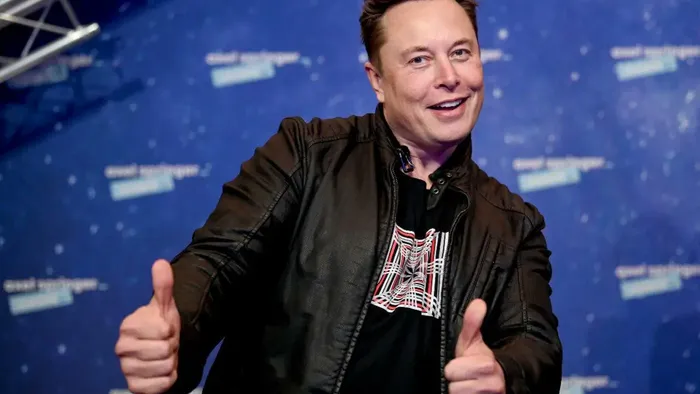How Musk ordered Starlink to 'misdirect' Ukrainian drone attack on Russian warships
Explosive biography

Billionaire Elon Musk has been accused of ordering his Starlink satellite communications network to be turned off near the Crimean coast last year to ‘misdirect’ a Ukrainian drone attack on Russian warships, according to a biography.
Image: X
A storm is brewing around President Cyril Ramaphosa after his controversial trip to the United States last week — a visit that, according to critics, was less about diplomacy and more about easing regulation so that billionaires Elon Musk and Johan Rupert fast track lucrative Starlink deal.
Musk has been accused of ordering his Starlink satellite communications network to be turned off near the Crimean coast last year to ‘misdirect’ a Ukrainian drone attack on Russian warships, according to a biography.
The biography alleges that Musk ordered Starlink engineers to turn off service in the area of the attack because of his concern that Vladimir Putin would respond with nuclear weapons to a Ukrainian attack on the now Russian-occupied Crimea.
Ramaphosa’s visit to the Oval Office, where he met with U.S. President Donald Trump, was described publicly as a mission to strengthen ties and “reset” bilateral relations between the two nations, but behind closed doors, sources say the conversation quickly turned to personal business.
Adding to the mystery, South Africans were puzzled by the presence of not just Rupert, but also golfing legend Ernie Els in high-level meetings during the trip. As social media lit up with questions: “What were they doing in Washington?” and ”Why were they part of a supposed diplomatic mission?”
Neither the Presidency nor the Department of International Relations and Corporation could provide a clear answer. Starlink is a satellite internet service developed by Elon Musk’s company, SpaceX. It's designed to bring high-speed internet to places that don’t have reliable service, like rural and remote areas.
On paper, it sounds like a game-changer for South Africa’s digital divide. But there are serious concerns. Starlink operates through thousands of satellites in space, and doesn’t rely on local infrastructure.
This means the South African government would have little control over it. Intelligence and cybersecurity experts warn that giving Starlink a free pass could weaken the country’s ability to regulate internet access and protect national security.“Starlink can bypass our entire telecommunications system,” said Dr. Zanele Masondo, a digital security researcher.
“That means less oversight, less accountability, and a lot of risk if something goes wrong, especially in times of conflict such as in Ukraine.”“
''If Musk can deny access to a country at war, what stops him from doing the same here if he disagrees with our policies?”
Masondo asked. Minister of Communications and Digital Technologies, Solly Malatsi, last week proposed a policy direction to guide the Independent Communications Authority of South Africa (ICASA) on the application of Broad-Based Black Economic Empowerment (B-BBEE) principles within the Information and Communications Technology (ICT) sector, including licensing requirements for satellite service companies such as Elon Musk's Starlink.
Phumzile van Damme, former Member of Parliament, expressed concern about Malatsi's proposed policy directive.
In a detailed thread on X, she argued that “most think the policy directive alone will exempt Starlink. No. Not by a stretch.
The process currently unfolding is procedurally flawed & unconstitutional.” Van Damme highlighted that the Minister’s attempt to issue a directive falls outside the proper legal framework, as “the enabling legislation for the directive is the BBBEE Act, not the ECA or ICASA Acts. Only the DTI Minister can amend or repeal a sector Code.”